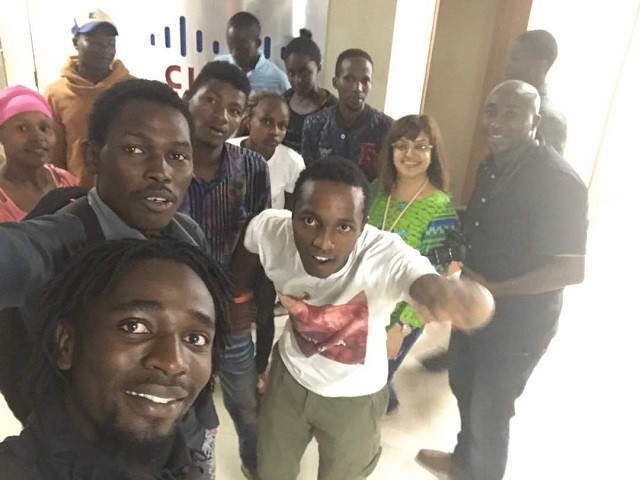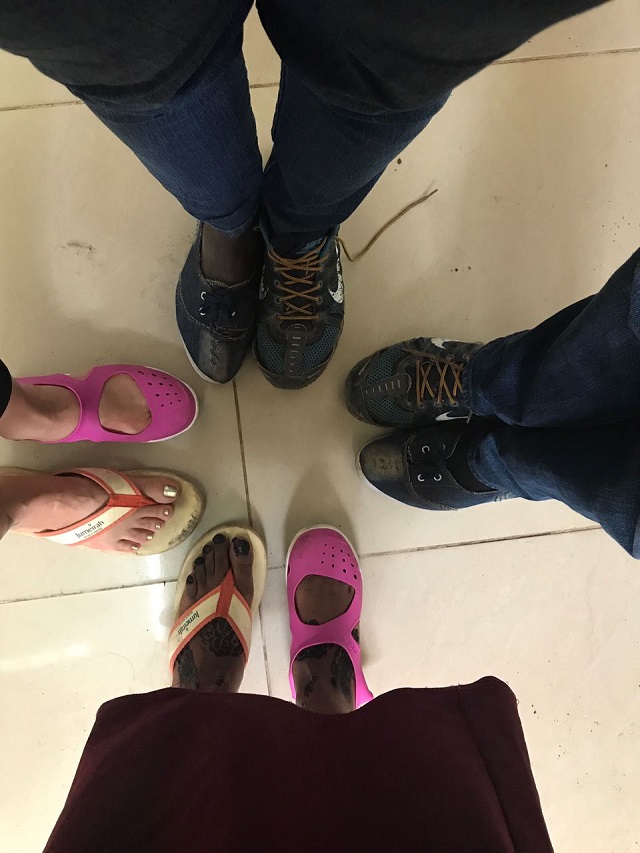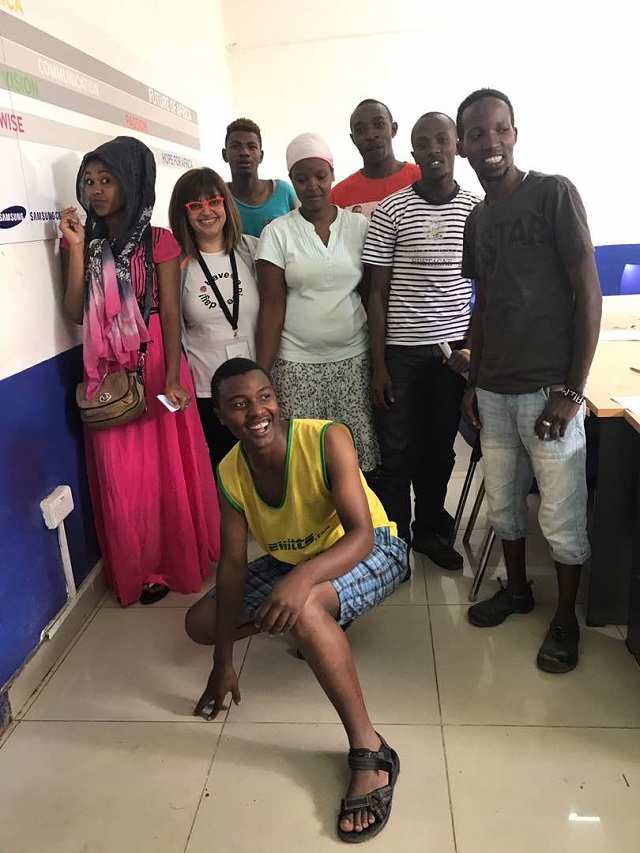
2018-March-27
Did you know? You can share this story using the social media icons on the left. Please include the hashtag #WeAreCisco. You can also rate and comment on the story below.
Living to Give
There are some people who need to give like they need to breathe. Cisco’s Hital Muraj, a corporate affairs manager based in Kenya, is one of them.
Hital’s job already comes with big demands. She’s responsible for our Networking Academy program in 16 countries spread across East Africa, Southern Central Africa and the islands of the Indian Ocean. She manages and recruits academies, and engages with the leadership of these countries. The goal: to build the information and communications technology (ICT) workforce and encourage socioeconomic development.
But Hital also finds the time to pour herself into a wide variety of volunteer work. It’s something she’s been passionate about even before she joined Cisco in 2005.
“I struggle with where to draw the line,” says Hital, who is also mother to a 17-year-old son. “I have huge passion and a personal story around helping people.”

Huge Passion
Hital’s early volunteer work centered on helping criminals, drug addicts, young rape victims and other disadvantaged individuals living in the slums of Nairobi, the Kenyan capital. She started an organization that helped get them into school and tried to instill in them the belief that good things can happen. Taking her laptop into the slums, she taught them basic digital skills, marketing and social media.
Her role at Cisco was a great fit. It drew on key skills such as relationship building. It put her in rooms with government officials whose dream was to work with young people and address unemployment. In 2007, she enlisted those skills in an effort to start a Networking Academy in Kibera—Nairobi’s largest slum. Starting with nothing, she spent three years looking for support. Eventually, she secured an empty room, then computers donated by a university in Spain.
The effort was worth it. Hital recalls an orphan from Kibera who, through the Academy, was able to move out of the slum, start a cyber café and later, with Hital’s help, become a systems engineer with a Cisco Gold Partner.
“That for me was real impact,” Hital says. “That was really getting somebody out of poverty.”
On another occasion, Hital came across a school where girls from the slum consistently underperformed in their studies. The reason, she discovered, was that they could not afford products for their periods, so the girls simply missed five days of school per month. Hital got the girls to write letters explaining their dilemma, which she then took to a local Cisco office and other organizations to jumpstart a drive. She asked female employees at these companies to buy an extra pack of feminine products when they went shopping. She then collected and donated these to the needy girls.
“Later I found a cheap supplier in China, so it became more affordable,” she says. “I was able to help 40 to 50 girls a month.”
The examples go on and on. Hital also established a Networking Academy for deaf youth—the first of its kind in the world. In Kenya, deaf kids are considered cursed and locked up in houses, often in chains. Not to be deterred, Hital led a door-to-door campaign, telling parents she wanted to train their deaf kids. The Academy changed many of their lives—including that of a young man named Wilson who left the slum, got married and secured a job with a Cisco partner as an IT engineer.
“From cases like this I get a lot of inspiration and adrenaline to continue doing more,” says Hital, who also established the first Networking Academy for the visually impaired.
Her efforts have not gone unnoticed. She received the Global Youth Leadership Award from Usher’s New Look Foundation, and was recognized as one of Kenya’s top 40 women under 40 for two consecutive years. And she’s responsible for Cisco’s CGI (Clinton Global Initiative) Commitment for East Africa, where she has successfully implemented ICT centers in rural communities in Kenya and Rwanda.

Walking in Their Shoes
In helping the disadvantaged, Hital draws on a deep well of empathy and compassion born of her own personal struggles. A native of India, she moved to Kenya at age 17 with her parents and siblings. Her father started a business but suffered a knife attack that left him unable to work and buried them under medical bills.
For 10 years, the family struggled to make ends meet. Hital and her younger brother had to put their educations on hold and take whatever jobs they could. Their mother had to sell off the family’s belongings and began catering from home for extra cash.
“Poverty is really, really ugly,” Hital says of that time in her life. “Your self-esteem goes down, you lose your sense of dignity.”
But even at this low point for the family, Hital’s father never stopped giving. In that sense, he was a role model for Hital. “He would still invite people home for dinner,” she recalls. “He would always say there are so many blessings in giving.”
Using Time2Give
Hital’s volunteer efforts are not slowing down. She is building an organization—called My Karma Foundation—that will serve as an umbrella for her various volunteer efforts. Just a year ago she was awarded a Rockefeller Foundation fellowship that allowed her to travel to Colombia; Bali; and Cape Town, South Africa, to study innovative volunteer initiatives in those areas.
“It was great learning,” she says.

One of those learnings was at RLabs in Cape Town, an organization that empowers youth through disruptive technology.”
Hital used her Time2Give to spend three days at RLabs, learning about its funding and operations, marketing techniques and more, as well as engaging with staff and youth.
“I wanted to know how I could start a similar model and start a franchise,” she says. “I wanted to replicate it.”
Hital took what she learned and immediately started a youth group in Mathare—another Nairobi slum. These days, she’s writing proposals and planning to use Cisco’s donation matching program to help My Karma Foundation be self-sustaining.
“It’s a work in progress,” she says. “I’m planting positive seeds—whatever goes around comes around. Good things will continue to happen.”
Related Links
- Cisco Networking Academy Partners with Deaf Aid
- Networking Entrepreneur Inspires Others in the Kibera Slums
- IT Essentials Multiplies Opportunity in Kenya Slums
- Find jobs at Cisco
- Time2Give Program
Connect everything. Innovate everywhere. Benefit everyone.
Share your thoughts!
Log in to rate and commentShare your thoughts on the story here!